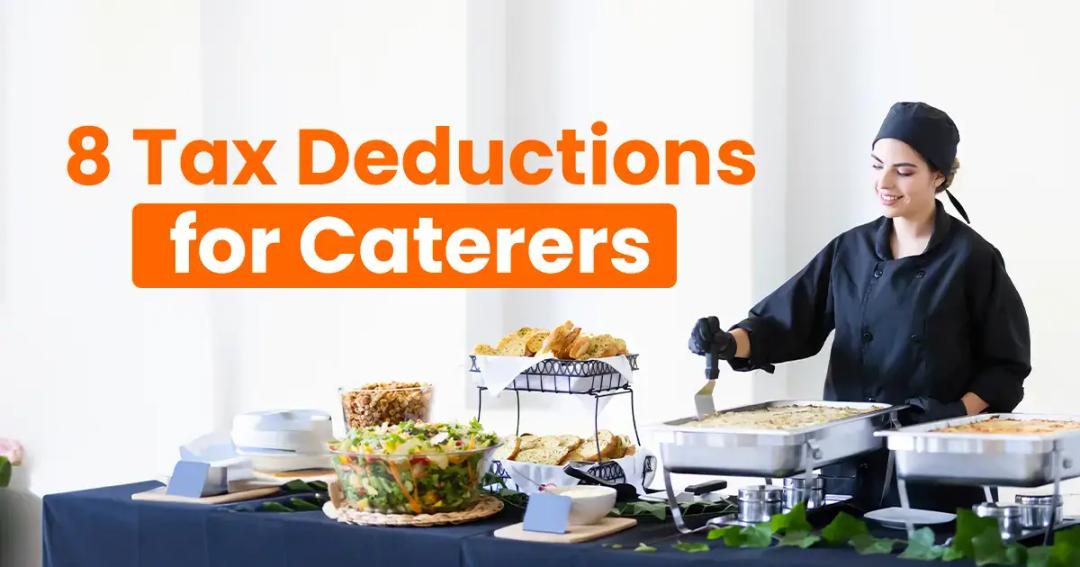
Running a catering business involves more than just crafting delicious meals; it also means understanding the financial side of things. With tax season just around the corner, it's important to know where you can save money and keep your hard-earned profits. So, whether you're a seasoned caterer or just starting out in the industry, this blog post is for you! We'll discuss the top 8 tax deductions for caterers that can help optimize your catering business's financial health.
1. Supplies
Anything that you need to run your catering business, like cooking utensils, service trays, and tablecloths, is considered tax deductible. However, keep in mind that large purchases may need to be depreciated over time, instead of being deducted all in one year due to the limits.
2. Vehicle expenses
If you use a vehicle exclusively for your catering business, you can deduct all of its related expenses. If you use it for both business and personal, you can only deduct the portion that's used for business. This includes mileage, fuel, tolls, maintenance, insurance, and depreciation. Just be sure to keep a mileage log or documentation of these expenses as you you will need proof when deducting all of your business expenses.
3. Rental space or mortgage interest
You might simply use your home kitchen to prepare food in your catering company. But if you rent out kitchen space in a separate location, the fees you incur to use such an area for food preparation qualify as a tax write-off as well.
4. Utilities
A portion of the utility bills for your catering business is tax deductible, this includes electricity, gas, water, and even waste disposal.
5. Insurance
Business insurance premiums for policies that cover your catering business can be deducted. This includes general liability insurance, property insurance, or workers comp insurance.
6. Advertising and Marketing
Expenses for promoting your catering business, such as print and digital advertising, business cards, website development and maintenance, social media advertising, and even branded merchandise, are fully deductible.
7. Employee Wages and Benefits
The wages you pay your employees, as well as the cost of benefits that you provide, are tax-deductible.
8. Meals
You can deduct 50% of the cost of business meals if they're related to your trade or business and followed by a significant business discussion.
Work with a Tax Professional to Maximize Your Savings
Partnering with expert tax professionals from 1-800Accountant can make a significant difference to your business. Their expertise ensures you navigate tax complexities efficiently, maximizing your deductions while staying compliant. Don't leave your finances to chance; let 1-800Accountant's experts guide your financial journey to success.
This post is to be used for informational purposes only and does not constitute legal, business, or tax advice. Each person should consult his or her own attorney, business advisor, or tax advisor with respect to matters referenced in this post. 1-800Accountant assumes no liability for actions taken in reliance upon the information contained herein.
